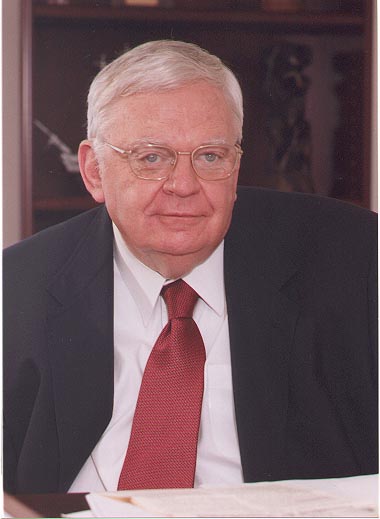During a journalistic career that stretched over half a century, Bill Shipp distinguished himself as one of the country’s premier political commentators, whose pronouncements and predictions were heeded by policymakers and activists at all levels of government.
William Shipp was born on August 16, 1933, in Marietta to Grace and Ralph Shipp. He graduated from Marietta High School and attended Emory University and the University of Georgia (UGA), where he was the managing editor of the student newspaper, the Red and Black. Shipp worked as a summer intern at the Atlanta Constitution in 1953, and in the fall of that year he wrote sharply critical editorials in the Red and Black protesting the decision by Georgia governor Herman Talmadge and the Board of Regents, including member Roy V. Harris, to bar Horace T. Ward’s enrollment at UGA.

Shipp’s support for integration ultimately resulted in his removal from the staff of the Red and Black, and according to the Atlanta Journal-Constitution, he was subsequently encouraged to leave campus altogether. From 1954 to 1956, he served in the U.S. Army and was stationed in Heidelberg, Germany, where he met and married Renate F. Reinelt; the couple had two daughters.
After Shipp came home from military service in 1956, he worked full time for the Atlanta Constitution. He went on to cover the civil rights movement, along with the early days of the space program, numerous political campaigns, and breaking stories all over the world during his three decades of writing and editing at the Atlanta Journal-Constitution.
Shipp broke the story that Jimmy Carter planned to run for president. “Nobody believed me,” he later recalled. “I had to beg the news editor to put it on page one.”
In 1987 he resigned his position as political editor to start Word Merchants, which produced Bill Shipp’s Georgia, a weekly newsletter. In the 1990s it became the country’s first serious political journal online, making Shipp, an old-school newspaperman, a digital pioneer.
Shipp sold the company in 2000, but his twice-weekly columns continued to appear in more than sixty newspapers in the years that followed, and he was a regular panelist on The Georgia Gang, a weekly televised roundtable discussion of current events.
Despite his prodigious output, Shipp confounded observers who sought to pin down his ideological identity. “When the Democrats are in power, they say I’m a Republican, and when the Republicans are in power, they accuse me of being a Democrat,” he said. “I regard myself as an independent, the guy in the striped shirt—the referee. Politics is like a great game of football.”
A consummate insider, Shipp was both a critic—and a confidante—of a generation of state leaders that included governors Jimmy Carter and George Busbee. He maintained a years-long feud with former governor and U.S. Senator Zell Miller, though the two men reconciled late in life. “You couldn’t help but like Shipp,” remembered former governor Roy Barnes. “I don’t care what he said about you and how hard a time he gave you, he was such a likeable soul and you knew he was doing what he thought was right.”
In 1997 Shipp published The Ape-Slayer and Other Snapshots, a collection of more than fifty essays and columns on subjects both personal and political. The title comes from a profile he wrote about a gung-ho, impolitic police officer who shot a rampaging chimpanzee in Midtown Atlanta. He also wrote Murder at Broad River Bridge: The Slaying of Lemuel Penn by Members of the Ku Klux Klan (1981), a nonfiction account of the 1964 murder of Lemuel Penn, a Black lieutenant colonel in the army reserves who, on his way home to Washington, D.C., was shot to death near the Oglethorpe–Madison county line by Athens members of the Ku Klux Klan.
Shipp retired in 2009 and died fourteen years later, in 2023, at the age of eighty-nine. His papers are held at the Richard B. Russell Library for Political Research and Studies at UGA. In 2016 he was inducted into the Georgia Writers Hall of Fame.





